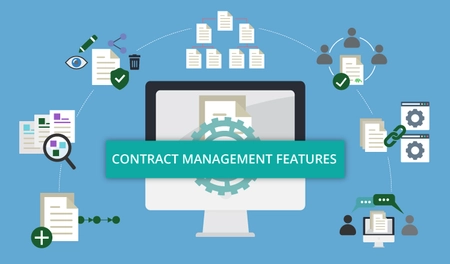
Why Warehouse Efficiency Matters
Warehouse efficiency directly impacts your bottom line. A well-optimized warehouse allows you to:
- Reduce Operational Costs: Streamlined processes minimize waste, reduce labor costs, and avoid delays, all of which contribute to cost savings.
- Improve Order Accuracy: Efficient order picking, packing, and shipping processes result in fewer mistakes and higher customer satisfaction.
- Enhance Inventory Management: Better control over inventory levels ensures you don’t overstock or understock products, leading to better cash flow management.
- Increase Throughput: A high-performing warehouse can process more orders in less time, improving overall productivity and profitability.
Key Strategies for Optimizing Warehouse Operations
To improve warehouse efficiency and performance, you need to focus on several key areas. Below are some of the best practices that can help you optimize warehouse operations:
| Strategy | Description | Benefits |
|---|---|---|
| Automate Repetitive Tasks | Implement technologies like automated sorting systems, robots, and conveyor belts to automate repetitive processes. | Reduces human error, increases processing speed, and lowers labor costs. |
| Implement Warehouse Management Software (WMS) | A WMS system helps manage inventory, track orders, and optimize picking and packing processes. | Improves inventory accuracy, order fulfillment, and reduces operational costs. |
| Optimize Warehouse Layout | Arrange inventory and workstations to minimize travel time for workers and reduce congestion. | Increases workflow efficiency and minimizes time spent searching for items. |
| Utilize Real-Time Data | Use data analytics and IoT devices to gather real-time insights about inventory levels, worker performance, and order progress. | Enhances decision-making, improves inventory management, and increases visibility. |
| Invest in Employee Training | Regularly train employees on best practices, new technologies, and safety protocols to improve performance. | Increases productivity, reduces accidents, and improves job satisfaction. |
The Role of Technology in Warehouse Optimization
Technology plays a vital role in improving warehouse efficiency. In 2024, the use of advanced technologies continues to revolutionize warehouse logistics. Here are a few technologies that can help optimize warehouse operations:
- Warehouse Management Systems (WMS): A robust WMS tracks and manages the movement of goods in real-time. This ensures that inventory is always up-to-date, making it easier to fulfill orders quickly and accurately.
- Automated Guided Vehicles (AGVs): These machines transport goods within the warehouse, reducing the need for manual labor and minimizing the time spent moving items from one location to another.
- Internet of Things (IoT): IoT sensors placed on inventory, machinery, or equipment can monitor conditions such as temperature, humidity, or wear-and-tear, providing valuable data to improve operations.
- Voice Picking Technology: Using voice-directed picking systems, workers receive real-time, hands-free instructions through headsets, increasing accuracy and speed during order fulfillment.
Key Performance Indicators (KPIs) for Warehouse Efficiency
To gauge the effectiveness of your warehouse operations, you must track certain KPIs that reflect overall performance. The following KPIs are critical for measuring warehouse efficiency:
| KPI | Description | Ideal Targets |
|---|---|---|
| Order Pick Accuracy | Measures the accuracy of picking items for orders. | Aim for 99% or higher to ensure fewer returns and customer complaints. |
| Inventory Turnover | Indicates how often inventory is sold and replaced over a period. | Higher turnover rates indicate better inventory management. |
| Order Cycle Time | Measures the time it takes to pick, pack, and ship an order. | Shorter cycle times lead to faster delivery and happier customers. |
| Space Utilization | Evaluates how effectively warehouse space is used. | Aim for 85-90% space utilization for optimal storage. |
| Labor Productivity | Measures the output of each worker (orders per hour, etc.). | Higher productivity leads to lower labor costs per order. |
The Importance of Inventory Management in Warehouse Efficiency
Effective inventory management is the cornerstone of warehouse optimization. A well-organized system allows you to keep track of stock levels, avoid overstocking or stockouts, and improve the accuracy of order fulfillment. Strategies for improving inventory management include:
- Just-in-Time Inventory: By maintaining the right inventory levels, you can reduce storage costs and minimize the risk of overstocking.
- Barcode and RFID Systems: Using barcode scanners and RFID tags speeds up inventory tracking and enhances accuracy in stock counts.
- Cycle Counting: Instead of conducting a full inventory count once a year, cycle counting helps maintain ongoing accuracy without disrupting warehouse operations.
Improving Warehouse Safety for Enhanced Efficiency
Warehouse safety is a key component of overall efficiency. A safe working environment prevents accidents, which can lead to costly downtime or worker injuries. Key safety measures include:
- Clear Signage and Markings: Use clear labels and signs to indicate safety hazards, emergency exits, and storage areas.
- Proper Equipment Handling: Ensure that all workers are properly trained on using equipment like forklifts and automated systems.
- Regular Safety Audits: Conduct periodic audits to identify potential hazards and implement corrective actions.
Conclusion
Optimizing warehouse efficiency and performance is crucial for staying competitive in today’s fast-paced logistics environment. By focusing on key strategies such as automation, using technology like WMS and IoT, and tracking performance with KPIs, businesses can significantly improve their warehouse operations. An efficient warehouse leads to faster order fulfillment, better inventory management, and higher customer satisfaction. With the right tools, techniques, and employee training, mastering logistics and improving warehouse operations will pave the way for long-term success.









